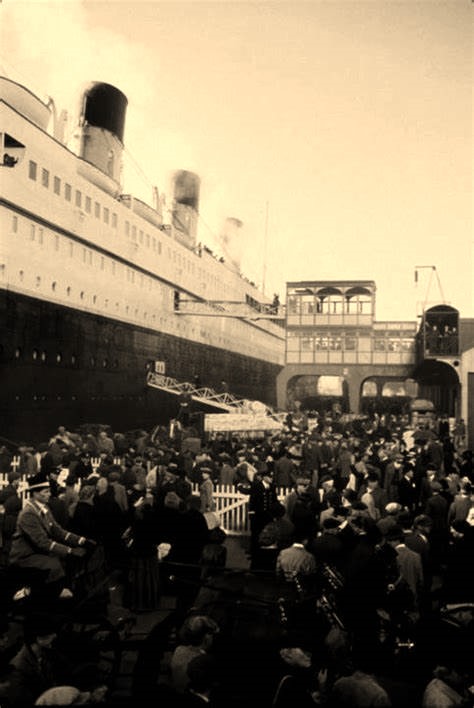The Sunday Sermonette – Home.

For the first fifty years of the 20th Century, ocean liners were the largest man-made moving objects on earth. They ruled the seven seas with their glamour, speed, and style. They were floating cities, a microcosm of society in those days. And because they were the only way to navigate the globe, the rich and the famous, the middle class and the poor all sailed aboard them. President Theodore Roosevelt was one of those people.
I heard the story you’re about to read over fifty years ago during chapel at William Carey College, now a University. It may be true; it may be apocryphal. But its lesson is eternal. In 1910, President Roosevelt was returning from an African safari with his entourage of officials and friends, so runs the tale. Boarding a ship for his return voyage to America, they were afforded every luxury. Throughout the voyage, the President was the center of interest. Life was good.
Far below all the luxury, pomp, and circumstance, the steerage passengers were crowded into cramped staterooms and roamed their limited deck space, often looking up at their “Betters” high above on their spacious deck, promenading elegantly in their fine clothes. One such steerage passenger was a missionary who had labored for a lifetime in the missions fields of Africa. He, too, was on his voyage home to America. He was alone. His wife had died, and his children had deserted him. He was old. He was lonely. And he was very despondent, thinking he had failed in his mission work.
When the ship docked in New York City, a huge crowd greeted the President with shouts of praise. A brass band played. Miniature flash-powder clouds from numerous newspaper cameras filled the air. The President and his minions walked through the applauding crowd, smiling, shaking hands, boarded a car, and faded into the distance.
Once the 2nd Class passengers disembarked, the steerage passengers did so. The band and the newspaper reporters were gone. Gone, too, were the adoring crowds that had welcomed the President. There was just the sound of talking, rushing families hailing cabs, looking forward to their new lives in America. The old missionary looked around, longing to see a familiar face. No one greeted him. No one even noticed him. He wandered, seemingly invisible, through the crowd and off to a shabby hotel to spend the night.
Entering his room, overwhelmed with fatigue and loneliness, he fell to his knees on the worn carpet. Tears hovered in the corners of his eyes. He prayed, “Father God, forgive my lack of faith when I say I don’t understand. For the past sixty years, I’ve given my life, toiling away in Africa, bringing the Good News that Jesus saves. But now, it seems that no one cares. No one greeted me, shook my hand, or encouraged me when I came home. Father God, I don’t understand.” In the silence of his room, he suddenly felt a sense of peace wash over him. He felt a gentle touch and heard a gentle voice say, “My dear child…you’re not Home yet.”
When life throws you a curveball, remember—you’re not Home yet. When the world around you is filled with hate, greed, and heartache, remember—you’re not Home yet. When disease racks your body, remember—you’re not Home yet. When evil is rewarded in this old world, remember—you’re not Home yet. God loves His children. Jesus died for them so they might live forever in a home prepared for those who believe. In the days to come, whatever befalls you, remember—you’re not Home yet.
Ponder this and go forth.
